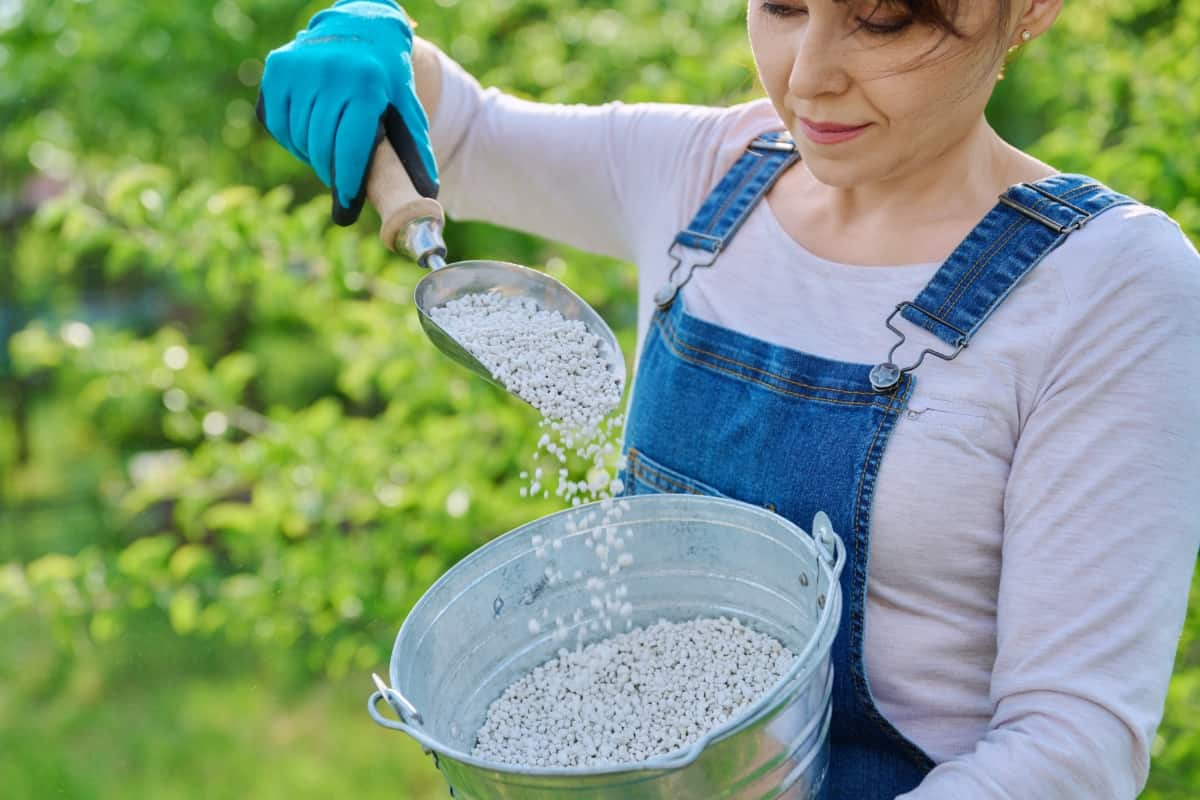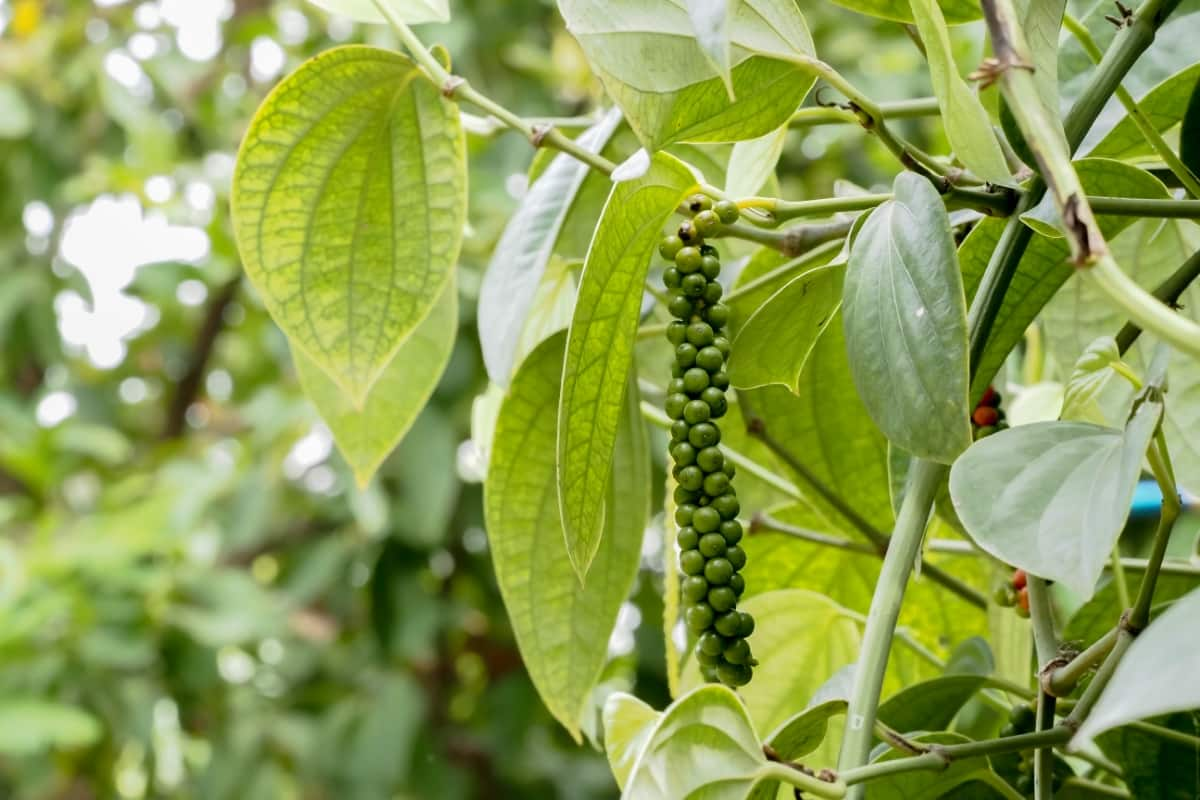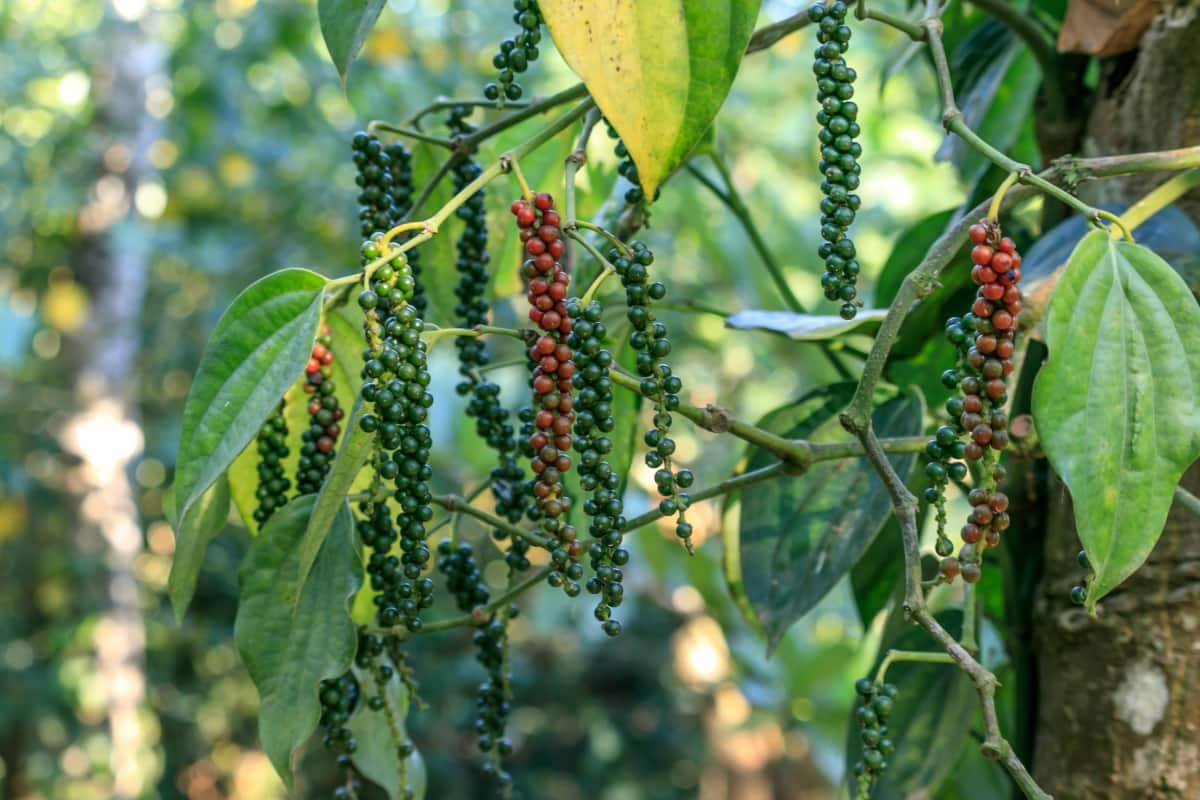Black Pepper plants, known for their aromatic and spicy fruits, require proper nutrient management to thrive. One crucial aspect of this management is the use of fertilizers. Fertilizers play an essential role in providing essential nutrients that Black Pepper plants need to grow vigorously and produce high-quality peppercorns. In this blog post, let us go through the best fertilizer for black pepper plants

Best Fertilzer for Black Pepper Plants
Nutritional Needs of Black Pepper Plants
Black Pepper plants are perennial vines that require specific nutritional needs to thrive and produce high-quality peppercorns. Understanding the nutritional requirements of Black Pepper plants is key to successful cultivation and a bountiful harvest. One crucial nutrient that Black Pepper plants need is nitrogen. Nitrogen plays a vital role in promoting vegetative growth and enhancing overall plant development. Adequate nitrogen supply ensures healthy foliage and robust vine growth.
Another important nutrient for Black Pepper plants is phosphorus. Phosphorus aids in root development, flowering, and fruiting. It also assists in energy transfer within the plant, contributing to increased yields. Black Pepper plants benefit from regular applications of phosphorus-rich fertilizers during their growing season.
Potassium is another key nutrient needed by Black Pepper plants for optimal growth. Potassium regulates water movement within the plant cells, improves disease resistance, enhances flower quality, and promotes fruit ripening. Adequate potassium levels ensure sturdy stems and healthy fruit development. In addition to these primary macronutrients (nitrogen, phosphorus, potassium), Black Pepper plants also require micronutrients such as iron, zinc, manganese, copper, and boron for proper growth and development.
Organic Fertilizers for Black Pepper Plants
Organic fertilizers are a popular choice for Black Pepper plants due to their natural composition and environmentally friendly benefits. One excellent organic fertilizer option is compost. Compost not only adds essential nutrients but also improves soil structure and fertility. Another organic choice is seaweed-based fertilizers. Seaweed contains high levels of potassium, which is crucial for enhancing fruiting in Black Pepper plants.
Additionally, it provides trace minerals that contribute to overall plant health and vigor. Fish emulsion is yet another organic fertilizer option for Black Pepper plants. This liquid fertilizer is made from fermented fish waste and has high nitrogen content, promoting healthy foliage growth. Bone meal contains phosphorus and calcium, two vital elements needed by Black Pepper plants during flowering and fruit development stages. It ensures robust root growth as well.
Synthetic Fertilizers for Black Pepper Plants
When it comes to nutrient management in Black Pepper farms, synthetic fertilizers can play a crucial role. One of the key advantages of synthetic fertilizers is their precise nutrient composition. This targeted approach ensures that Black Pepper plants receive optimal nutrition without any guesswork.
In case you missed it: Black Pepper Varieties in India: Different Types of Black Peppers

Moreover, synthetic fertilizers often release nutrients quickly, making them readily available for uptake by the plant’s roots. This fast-acting characteristic can be particularly beneficial during periods when immediate nutrient supplementation is required or when faced with specific deficiencies.
Nitrogen-Based Fertilizer for Black Pepper Plants
Nitrogen is responsible for photosynthesis and healthy leaf formation. Additionally, nitrogen promotes vigorous vegetative growth, leading to healthier and more productive plants. When choosing a nitrogen-based fertilizer for your Black Pepper plants, there are several options available. One popular choice is ammonium sulfate, which provides readily available nitrogen to the plants.
Another option is urea, a common synthetic fertilizer that contains high levels of nitrogen. It’s important to note that while synthetic fertilizers can provide quick results by supplying nutrients directly to the plant roots, they may have long-term negative impacts on soil health. Therefore, organic alternatives such as composted manure or fish emulsion can be considered.
Phosphorus-Rich Fertilizer for Black Pepper Plants
Phosphorus is an important nutrient for the growth and development of Black Pepper plants. It plays a key role in including energy transfer, root development, and flowering. Therefore, providing an adequate supply of phosphorus-rich fertilizer is vital for optimal growth and yield. When choosing a phosphorus-rich fertilizer for your Black Pepper plants, it’s important to consider its availability and solubility. Easily soluble phosphorus fertilizers can be quickly taken up by the plant roots, ensuring efficient nutrient uptake.
One popular phosphorus-rich fertilizer option is bone meal. This slow-release characteristic makes it ideal for long-term nutrient management in Black Pepper farms. Another commonly used option is rock phosphate. Although it has lower solubility compared to other forms of fertilizers, rock phosphate can still provide a sustainable source of phosphorus to Black Pepper plants when applied correctly. It requires microbial activity in the soil to break down and release the nutrients gradually.
In addition to these organic options, synthetic phosphorous fertilizers are also available on the market. These fertilizers often contain concentrated levels of phosphorous compounds that the plants can readily absorb. Remember that while providing adequate amounts of phosphorous through fertilizer applications is important, it’s equally crucial not to overdo it.
Potassium-Based Fertilizer for Black Pepper Plants
Potassium plays a crucial role in various physiological processes, including photosynthesis, water regulation, and nutrient uptake. One popular option for potassium-based fertilizers is potassium sulfate. This fertilizer contains potassium and sulfur, both essential elements for plant growth.
Potassium sulfate is easily absorbed by the plant’s roots, ensuring quick availability of this important nutrient. Another option to consider is the muriate of potash (potassium chloride). While it provides a concentrated source of potassium, it’s important to note that excessive chlorine content may harm sensitive crops or soil microorganisms. Therefore, it’s crucial to apply muriate of potash cautiously and in appropriate amounts.
Micronutrient Fertilizers for Black Pepper Plants
Micronutrients play a key role in the growth and development of Black Pepper plants. These essential elements are required in smaller quantities compared to macronutrients, but they are equally important for maintaining plant health and maximizing yields. One micronutrient that is particularly beneficial for Black Pepper plants is iron.
Iron is responsible for photosynthesis – the process by which plants convert sunlight into energy. Another micronutrient that Black Pepper plants need is manganese. Manganese aids in various metabolic processes within the plant, including enzyme activation and nitrogen metabolism. A deficiency of manganese can lead to reduced fruit set and poor-quality berries.
In case you missed it: Growing Black Pepper from Cuttings, Seed (Kali Mirch)

Zinc is yet another vital micronutrient required by Black Pepper plants. It plays a significant role in hormone synthesis, protein formation, and carbohydrate metabolism. Zinc deficiency can result in distorted leaf growth and weak stems. Farmers often use fertilizers specifically formulated with high concentrations of iron, manganese, zinc, or other necessary trace elements. These fertilizers provide targeted nutrition to meet the specific needs of Black Pepper plants throughout their growing cycle.
Slow-Release Fertilizers for Black Pepper Plants
One benefit of using slow-release fertilizers is that they reduce the frequency of application. Instead of needing to apply fertilizer every few weeks, you can simply apply it once and let it gradually release its nutrients over time. This not only saves time and effort but also prevents excessive nutrient accumulation in the soil. Another advantage is that slow-release fertilizers promote better root development.
The gradual release allows for sustained nutrient availability, which encourages strong and healthy root growth. Well-developed roots are crucial for Black Pepper plants as they help with water absorption and anchoring the plant securely in the soil. Additionally, slow-release fertilizers minimize nutrient loss through leaching or runoff. Since these fertilizers slowly break down, there is less chance for excess nutrients to be washed away by rainwater or irrigation. This means more efficient use of resources and reduced environmental impact.
Best Practices for Fertilizing Black Pepper Plants
When it comes to fertilizing Black Pepper plants, there are a few key practices that can help ensure their healthy growth and optimum yield. First and foremost, it’s important to understand the specific nutritional needs of Black Pepper plants. This will guide you in selecting the right type and amount of fertilizer. One crucial practice is to provide a balanced nutrient management approach.
Black Pepper plants require nitrogen, phosphorus, potassium, and various micronutrients for optimal growth. Timing is another vital factor when it comes to fertilization. It’s best to apply fertilizers during the active growing season or just before new shoots emerge. Proper application techniques also play a key role in effective fertilization. Avoid applying excessive fertilizer at once, as this can cause nutrient imbalances or even damage the roots of your Black Pepper plants.
In case you missed it: Growing Peppers in Grow Bags: Planting from Seed and Care

Instead, divide your fertilizer applications into multiple smaller doses throughout the growing season. Regular soil testing is a recommended practice for monitoring nutrient levels in your Black Pepper farm. By knowing exactly what nutrients are lacking or excessive in your soil, you can adjust your fertilizer application accordingly.
Conclusion
Proper nutrient management is crucial for the successful cultivation of Black Pepper plants. By understanding their nutritional needs and using the right fertilizers in the correct dosage and application methods, farmers can ensure optimal growth and yield. By following best practices in nutrient management and avoiding pitfalls when using fertilizers on Black Pepper plants, farmers can maximize crop productivity while minimizing negative impacts on the environment. Remember that every farm is unique, with its own set of conditions and challenges.
- How to Grow Tomatoes Organically at Home: A Comprehensive Guide
- Organic Gardening on a Budget: Low-Cost Methods and Materials
- Gongura Seed Germination and Planting Methods
- Cabbage Seed Germination and Selection
- Broccoli Seed Germination and Selection
- Asparagus Seed Germination and Variety Selection
- Seasonal Flower Gardening: Best Practices for Spring, Summer, Fall, and Winter
- How to Grow Hibiscus from Flower
- Plantation Ideas for Home Decoration: A Beginners Guide